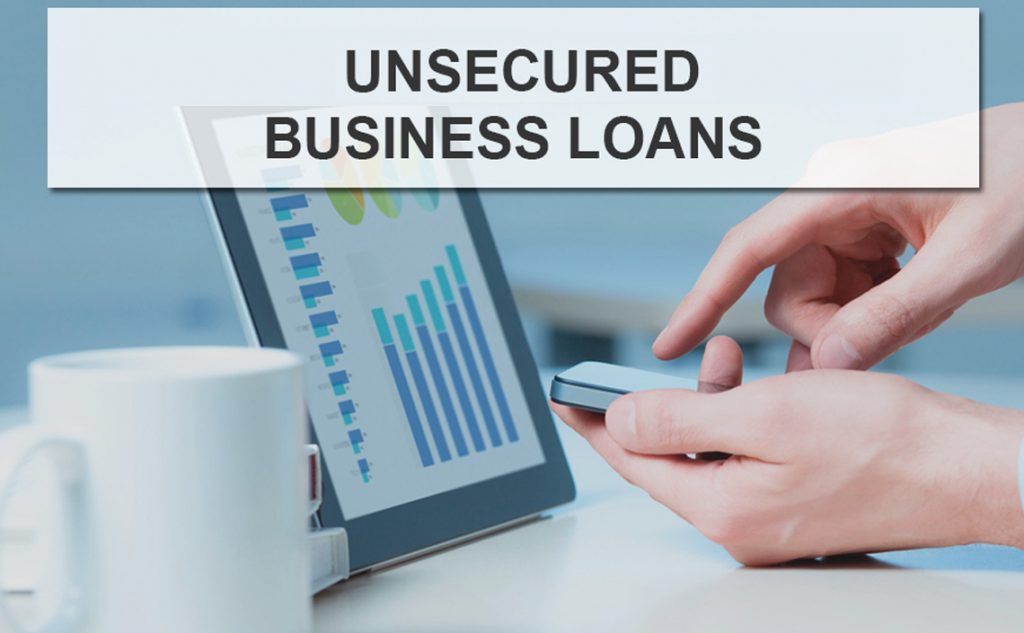According to Statista, the highest approval rate for a small business loan in the United States is from the alternative lenders which are 25%. It means the alternative lenders approve one out of four applications. While traditional banking loan approval rate is 13% which is the lowest among all other lenders.
Alternative findings for a business refer to the non-traditional lending sources from which an entrepreneur can get financing for their small business or startups. Simply, it is the best unsecured business loan option for small businesses.
There are numerous non-traditional funding entities online, which offer different types of unsecured small business loans for startup owners with bad credit scores. You can choose the best one according to your business nature and circumstances.
Why Should You Go For Unsecured Funding?
You are turn downed by a traditional loan system.
You may have a very bad credit score.
You may need your funds urgent.
You want to get rid of long and tedious paperwork.
You have no collateral for bank.
You need a flexible business line of credit.
Here is the list of best alternative funding for a small business or startup, let's discuss it one by one in detail.

Term Loans
Term loans are fixed for a specific time period with fixed or flexible monthly installments. They can be for the long term or short term like the working capital loan is short term and car or house financing is a long term loan. The interest rates are relatively low, so it is preferred by small business organizations. It can be used to purchase fixed assets like office equipment or machinery.
Trader Loans
Trade loans are a great option for importers or exporters. This is an awesome short-term financing facility. It can also be best suited for wholesalers and manufacturers.
It is completely a revolving credit facility. It helps the businesses in the time gap between purchasing the product and selling it to the end-user. It improves and makes cash flow smooth for the company.
The interest rate of the trade finance depends on the default risk of the transaction to be made.
Business Credit Extension
The credit extension refers to a request from the borrower to the lender to extend, amend or continue the current revolving credit facility. It is the same as getting a new business line of credit or loan.
Business credit extension is a good option for parties, the lender and borrower. It increases sales and makes the lender competitive in the marketplace.
Getting a credit extension helps you a lot, in maintaining your working capital, managing cash flow, and fulfilling all your other business needs.
Equipment or Hardware Financing
This type of loan is specially designed for the acquisition of high-cost equipment and machinery that could be very necessary to run your business. This type of business credit applies to all sorts of businesses, yet it can be best suited for new business startups with no credit score.
This is a type of asset-based financing, where your purchased asset works as collateral for your business loan.
It can be available both in terms of lease and loan. The amount of financing depends on the type and value of machinery or equipment you want to purchase.
Receipt or Invoice Financing
It is also one of the best unsecured business credits for startup businesses with bad credit scores. It is good when your business has potential credit sales, and you have receivable invoices. You can get invoicing financing by the use of your account receivable.
The lender will keep your credit invoices as collateral for your loan. In this type of financing the lender is more concerned about the credit score of your customer rather than your own business credit score.
Don't mess up invoice factoring with the invoicing financing. In invoice factoring, you are selling your credit invoices to a factoring company at a discounted rate. The factoring company collects your receivables from the customers on your behalf and charges you a fee called factor fee.
Merchant Cash Advance
If you are a new business startup and looking for fast short-term financing, the MCA will be a great option for you. If your company is accepting credit cards for recipes and payments then you can easily get a merchant cash advance loan.
In this type of credit, you actually borrow some cash advance from the merchant cash advance supplier against your expected future credit card sales. You signed a contract with the MCA supplier. The lender will give you a lump sum amount and you have to pay it back by a flexible daily or monthly repayment schedule.
This is an awful alternative for traditional business loans. It is an unsecured business credit with high-interest rates. The loan amount and interest rate largely depend on the volume of your credit sales. It is best for startup business owners having short of working capital with bad credit scores.
Main Features of Merchant Cash Advance
● No need for financial assessment and credit score
● Unlike traditional loans no need for collateral
● Very simple application procedure
● Easy and less paperwork
● Approved against your future profits
● Minimum approval time (24 Hours)
● Flexible repayment terms (According to your sales)
● Best for small businesses or startup owners
Business Line Of Credit
A business line of credit is working just like a business credit card. But it has a low revenue risk with a high amount of credit. It is the pre-defined sum of money accessible to you by the bank or any other financial institution when needed.
It is a type of short-term loan which covers your unexpected financial needs. It helps you to boost your financial growth and increase your credit score.
The business line of credit is not so popular, it's because of the low marketing budget spent on them by banks. But it could be a great option for a small business owner to get funds for their startup business. Generally, there are two main types of business lines of credit
Secured business lines of credit.
It is a secured business line of credit. You have to pledge a specific short-term asset like accounts receivable or inventory as collateral. No credit score is required. But the lender requires your asset as collateral.
It can be a great financing option for an entrepreneur who is looking for a small business loan with poor credit points. Its interest rates may be relatively low and there are flexible repayment terms. You can get a high amount of funding in secured lines of credit.
Unsecured business lines of credit.
It is a fully unsecured short-term business loan that requires no collateral. But, the lender can demand a guarantor and is more concerned about your credit history and financial position. Unlike the secured credit line, it has high-interest rates and carries a low amount of credit loan.
Small Business Administration (SBA) Loans
These are small business loans offered by banks or private lenders partially guaranteed by U.S small business administration. These are excellent alternatives for traditional banking loans. Usually, they have low-interest rates, flexible terms, and tough lending criteria.
Although there are several types of SBA loans, the SBA (7a) loan program is most popular for small businesses and startups. These are best for real estate businesses but can be used to finance working capital and purchase of equipment and machinery.
Some of the main features of SBA loans are large loan amounts, very low-interest rates, a longer time period with the flexibility of use, and favorable repayment terms. On the other hand, it has disadvantages too, like a lot of paperwork is required, longer application processing time, down payment and a good credit score is required.
Crowd Funding
It's basically the idea of collecting a very small amount of money from the masses for a specific cause or project. It is considered the most cost-effective option for a startup business loan.
Crowd funding is often used by new startups, not-for-profit organizations, and individuals to raise funds from a large number of people for new projects or ideas. There are three main types of crowd funding.
Equity Crowd funding: It is the sale of equity shares to the general public in return for a financial reward.
Debt Crowd funding: In this type, the company issues debt securities like bonds to the general public in return for a financial benefit.
Rewards Crowd funding: Here individuals donate to a company or project in return for a non-financial reward, like goods and services.
Donation Crowd funding: This type is specially designed to collect donations or charity from people with no financial or material return.
Working Capital Loan
The name itself defines working capital loans. It is a short-term financing facility available to fund the day-to-day business operations, like staff salaries, wages, office rent, sales, and marketing. It can be used to manage the time gap between collectible and payables.
It is the best alternative funding facility for seasonal and small businesses having an irregular flow of income. These can be secured or unsecured loans. The lenders usually see your past and present cash flow volume to determine the loan amount.
Working capital loans are a very easy and quick option to meet your short-term business financial obligations.
The main types of working capital loans for small businesses are,
● Revolving credit facility
● Bank overdraft
● Letter of credit
● Bank guarantee
● Account receivable loans
● Trade credits
● Invoicing factoring
● Term loans


Hi, this is a comment.
To delete a comment, just log in and view the post's comments. There you will have the option to edit or delete them.